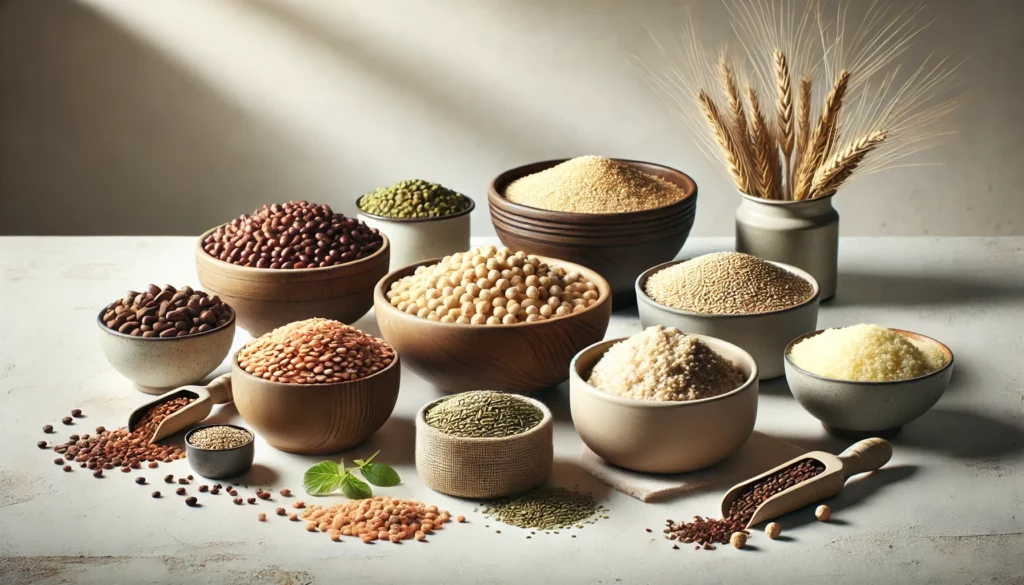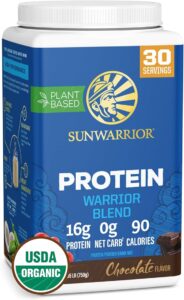Plant-Based Diet: Fact vs Fiction
Dec 30, 2024Explore the truth about plant-based diets. Debunk common myths, understand the facts, and learn how to make informed dietary choices for a healthier lifestyle.
The rise of plant-based eating has brought with it a wave of both enthusiasm and misinformation. Understanding the plant-based diet fact vs fiction is crucial for anyone considering this lifestyle or simply wanting to make informed dietary choices. This article aims to debunk common myths, clarify the realities of plant-based eating, and provide a clear picture of what it truly means to embrace a diet centered around plants.
Defining the Plant-Based Diet: Beyond Vegetarianism and Veganism
A common misconception is that "plant-based" is synonymous with "vegetarian" or "vegan." This is a key area where plant-based diet fact vs fiction becomes important. While vegan diets exclude all animal products, and vegetarian diets generally exclude meat, poultry, and fish, a plant-based diet focuses on prioritizing whole plant foods. This doesn't necessarily mean eliminating any food group entirely, but rather emphasizing vegetables, fruits, whole grains, legumes, nuts, seeds, and plant-derived oils. It's about choosing more of your foods from plant sources, making it a flexible and adaptable approach to eating.
Debunking Myths About Plant-Based Diets
Myth: Plant-Based Diets Lack Protein
One of the most pervasive myths surrounding plant-based eating is that it's impossible to get enough protein. However, this simply isn't true. Protein is found in abundance in the plant world.
 Credit: plantbasedfamilyliving.com
Credit: plantbasedfamilyliving.com
Legumes like lentils, chickpeas, and black beans are excellent sources, as are soy products like tofu and tempeh. Nuts, seeds, and whole grains such as quinoa also contribute to daily protein intake. Even some vegetables like spinach, broccoli and potatoes provide some protein. The key is to consume a varied diet that includes different plant-based protein sources throughout the day. For most adults, the recommended daily protein intake can easily be met through a well-planned plant-based approach.
Myth: Plant-Based Diets Are Nutritionally Inadequate
Another common myth is that plant-based diets are nutritionally insufficient, leading to deficiencies in key nutrients. While it's true that vegans need to be mindful of Vitamin B12, a well-planned plant-based diet can provide all necessary nutrients. This is another key area to understand the plant-based diet fact vs fiction.
 Credit: plantbasedfamilyliving.com
Credit: plantbasedfamilyliving.com
Iron can be found in lentils, chickpeas, and spinach, while calcium is abundant in fortified plant milks, tofu, and leafy greens like kale. Omega-3 fatty acids are present in flaxseeds, chia seeds, and walnuts. Vitamin B12, which is not naturally found in plant foods, can be obtained through fortified foods and supplements. By making informed choices and, if needed, supplementing, vegans and vegetarians can thrive on plant-based diets.
Myth: Plant-Based Diets Are Expensive and Inaccessible
Many people believe that adopting a plant-based diet is an expensive endeavor, only accessible to those with higher incomes. This perception is a major deterrent for some.
However, a basic plant-based diet centered around whole foods is often more affordable than a diet heavy in meat and dairy. Staples like beans, lentils, rice, pasta, potatoes, frozen vegetables, and seasonal fruits are generally inexpensive and widely available. Cooking at home and buying in bulk are also effective strategies to keep costs low. Additionally, many traditional cuisines from around the world, like Indian and Mediterranean, naturally include a variety of affordable and nutrient-dense vegan dishes.
Myth: Plant-Based Diets Are Boring and Lack Variety
The misconception that plant-based diets are monotonous and limiting is another common myth. This is far from the truth. The culinary possibilities within a plant-based diet are vast and diverse.
 Credit: www.keckmedicine.org
Credit: www.keckmedicine.org
From hearty curries and stir-fries to decadent desserts and baked goods, plant-based meals can be rich, flavorful, and satisfying. The rise of veganism has led to an explosion of recipes, cookbooks, and food products, offering endless possibilities for delicious and varied meals. Popular options like vegan burgers, dairy-free cheeses, and plant-based milk alternatives make it easier than ever to enjoy comfort foods in a vegan version.
Myth: Plant-Based Diets are Not Filling
A concern for many is that plant-based meals are not very filling, leading to hunger and cravings. In reality, many people feel less hungry on a whole-food plant-based diet than on a typical American diet. Plant proteins are very filling and may keep you more full than animal protein due to their fiber content. Fiber is present in all unprocessed plant foods and is a key component in helping your gut absorb nutrients, reduce inflammation, and maintain healthy bowel management.
Myth: All Plant-Based Foods Are Healthy
It's important to understand that not all plant-based foods are automatically healthy. Just because something is labeled "vegan" or "plant-based" doesn't guarantee its nutritional value. There are vegan versions of almost everything these days, but many processed plant-based foods are high in refined sugar, salt, and unhealthy fats.
Focus on whole, unprocessed plant foods like fruits, vegetables, legumes, and whole grains to ensure a truly healthy plant-based diet. Reading ingredient lists and choosing foods that are minimally processed is essential.
Myth: Plant-Based Diets Are Restrictive and Socially Inconvenient
Some believe that a plant-based diet is too restrictive and makes social situations challenging. The truth is that a plant-based diet is adaptable to most social situations. It's about making more of your meals plant-based and eating more natural plant foods in general. Remember, a plant-based diet does not mean excluding animal products entirely. There’s still room for foods like meat, poultry, eggs, cheese, yogurt, and fish. Indulging in these from time to time isn't going to make or break your health. At restaurants, most establishments offer some plant-based options, and you can often call ahead to inquire about substitutions.
Myth: Plant-Based Diets Are Not Suitable for Children
Another misconception is that plant-based diets are not suitable for children. This is incorrect; however, it's crucial to ensure that the bulk of a child's diet is made up of natural plant-based foods like fruits, vegetables, whole grains, seeds, and nuts. Parents need to be mindful that their children get enough calcium, protein, zinc, iodine, and iron from food sources, as well as supplement their diet with a Vitamin B12 supplement.
The Benefits of a Plant-Based Diet
Beyond debunking myths, it's essential to understand the benefits of a plant-based diet. A well-planned plant-forward diet can positively impact your health and the environment.
Improved Health
Regularly consuming plant-based foods can help prevent and reverse a range of chronic conditions, including heart disease, type 2 diabetes, and certain cancers. These nutrients also support healthy cholesterol, blood pressure, and blood sugar levels. Plant-based foods are also packed with fiber and phytonutrients that support immunity, combat inflammation, and feed the healthy bacteria in your gut.
Environmental Sustainability
Eating more whole plant foods reduces your carbon footprint, lowers habitat destruction, and saves water. Plant proteins are far more affordable and far better for the planet than animal proteins. Plant agriculture uses less water, chemicals, and land than animal agriculture.
Making the Transition to Plant-Based Eating
For those considering a shift to a plant-based diet, these tips can help ease the transition effectively:
- Start Small: Instead of making drastic changes overnight, implement small changes each week.
- Make Smart Swaps: Gradually increase the ratio of veggies to meat in your daily meals and snacks.
- Gather Easy Recipes: Compile a collection of quick and easy plant-based recipes that you can make on your busiest days.
- Don't Beat Yourself Up: Progress is better than perfection. If you slip up, don't be hard on yourself. Patience and consistency are key to forging new habits.
- Consult a Professional: Speak with a registered dietitian or nutritionist before starting any new diet, especially if you have any health conditions.
Plant-Based Eating and Specific Health Concerns
For those with specific health concerns, such as kidney disease, understanding the plant-based diet fact vs fiction becomes even more vital. Individuals with kidney disease need to be mindful of their intake of certain nutrients, such as potassium, phosphorus, and protein. While a plant-based diet can be beneficial for kidney health, it's essential to work with a healthcare provider or dietitian to create a meal plan that meets individual needs. Plant-based diets can be beneficial for managing kidney disease if done wisely and under proper guidance.
Conclusion
The plant-based diet fact vs fiction landscape can be confusing, but understanding the realities and benefits of plant-forward eating can empower you to make better dietary choices. A plant-based diet is not about restriction but rather about embracing a wide array of whole, nourishing plant foods for optimal health and well-being. By focusing on whole foods and making informed decisions, you can reap the numerous benefits that a plant-based lifestyle offers.
Jan 21, 2025
Explore the pros and cons of a plant-based diet, including health benefits, potential challenges, and tips for successful implementation. Learn about vegetarian, vegan, and flexitarian approaches.
Jan 20, 2025
Explore the latest research on plant-based diets and their powerful health benefits, including disease prevention, heart health, diabetes management, and cancer risk reduction.
Jan 16, 2025
Explore the nutritional landscape of processed fake meat, comparing them to traditional meat and whole plant foods. Learn about ingredients, health impacts, and making informed choices.